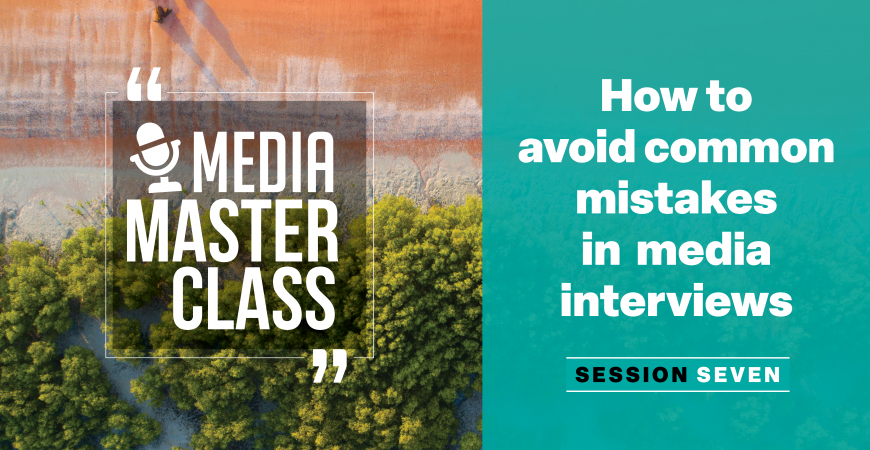Interviews with the media, especially in front of a camera, can be daunting, particularly for the uninitiated. If it’s about a controversial topic, an interview can feel more like a boxing match than a conversation, and interviewees can leave feeling stunned and unable to remember anything they’ve said. In more recent times, the risk of greenwashing (exaggerating your company’s sustainability and ESG performance) has increased significantly.
There are some common media interview mistakes and here’s some advice on how to avoid them:
Understand the interview
It’s not unusual for busy people to agree to an interview only to find out later that it’s going to be completely different to what they thought. For example, if you expect a casual conversation and find yourself in a confrontational setting, it can throw you off your game. Or if you’d assumed an interview would be pre-recorded and it’s live on camera, you may not give your best performance. So, ask questions about the context and logistics of an interview before you agree to it.
Be prepared
Unless you are an extremely seasoned media performer, interviews in which you ‘wing it’ without having a clear set of key messages you want to get across rarely go well. Make sure you’re familiar with the topic, gather relevant data and information and anticipate potential questions. Refining your messages and rehearsing beforehand will give you a much better chance of performing well and will help you avoid another media interview mistake: waffling to fill in space.
Don’t make things up
There is no bigger sin than fudging figures or fabricating information. When people are under pressure to know the answer to a question, it’s tempting just to make it up. Don’t. It will come back to haunt you later. Either the journalist will know on the spot that you’re being ‘creative’ and push you harder, potentially exposing your lack of knowledge, or they’ll report what you’ve said as fact and find out later that it isn’t - this interview mistake will discredit you as a talent.
A much safer option if you don’t know the answer is to just say so. You can’t be expected to know every bit of information and every figure off the top of your head, so simply tell the journalist that you are unsure of the correct answer, but you are happy to check and get back to them with accurate information after the interview.
Tip: use the opportunity to bridge to one of your key messages. This is a skill our clients get to practice in ReGen Strategic’s media training – transitioning smoothly from something you don’t know to something you do.
Don’t exaggerate your sustainability and ESG credentials
Companies around the globe are currently finding out what reputational damage can be caused when they exaggerate their sustainability and ESG credentials, i.e., greenwashing. While you may be proud of what your company is planning to do for the environment or the difference you are making in the community, don’t be tempted to overstate the impact you’re making or, worse, say that you’re doing something that you’re not. Greenwashing can lead to your brand being cancelled, legal action being taken against your company or a significant financial penalty from a regulator.
Listen to the questions
Active listening is crucial during media interviews to ensure you understand, and are answering, the right question. Cutting the journalist off mid-question, jumping to conclusions or providing unrelated answers can create confusion and lead to misinterpretation of what you’re trying to say. Let the journalist ask the question in full, then take a moment to gather your thoughts before responding.
Keep your cool
No matter how hard a journalist pushes you, it’s important to always stay calm and reasonable. Even though it may feel like you’re under attack, it’s seldom personal. Just remind yourself it’s a journalist’s job to play devil’s advocate. Losing your temper will put them offside and potentially make them push you harder. If you make this media interview mistake you’ve lost your chance to get your message across.
We cover all these common media interview mistakes and how to avoid them in ReGen’s bespoke media trainings. For more information, please contact us.
 ReGen Strategic
ReGen Strategic